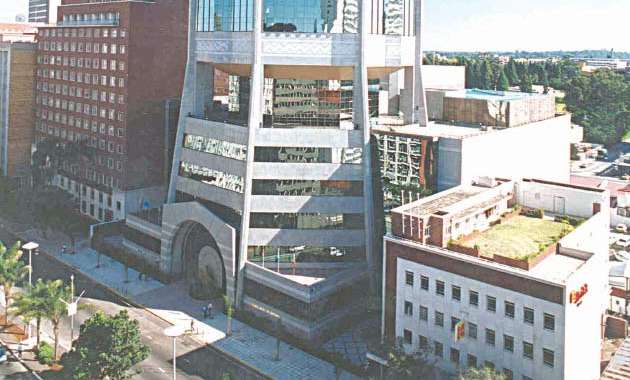RBZ debt takeover faces resistance

Tinashe Makichi Business Reporter
The proposed takeover of the Reserve Bank of Zimbabwe debt faces stiff resistance as members of the public, bankers and the business community called for a thorough audit of the debt following revelations that the Government is not aware how part of the debt accrued and how some of the money raided from several accounts was used.
Of particular concern to bankers is that they are facing a litany of lawsuits for raiding clients’ foreign currency accounts following a central bank directive in 2007.
Bankers’ representatives told a public hearing on the RBZ debt assumption Bill held by the Parliamentary Portfolio Committee on Budget and Finance that Government must extend immunity to the banks the same way it has done to the RBZ.
The RBZ in 2009 also issued a directive to banks to transfer funds belonging to public enterprises to its account because it wanted to manage the State enterprises’ funds during that period.
“We did transfer funds on the basis of it being the regulator. It’s now a situation where banks have to defend litigation from depositors and some banks right now are defending litigation from State entities,” said Mr Wellington Chimwaradze who is a member of the Bankers Association of Zimbabwe Legal Commission.
He added that some of the litigation that some banks are facing was arising from interest that was being demanded by State enterprises on the funds that were transferred to RBZ.
The 2007 directive made it clear that there was a 12 percent interest that would apply to all currencies that were transferred to the RBZ during that period.
“Right now most banks are defending litigation accruing from the 12 percent interest that the RBZ promised and banks were just agents at that time hence requesting for immunity now that the debt is set to be assumed by Government.
“This 12 percent interest is mentioned in the schedules of law but in the body of the Bill it is not clear,” he said.
MBCA representative Advocate Neeta Joshie told the panel of parliamentarians that the greatest concern for the banking sector is the aspect of immunity.
She said the Bill gives unequivocal immunity to the RBZ while this immunity does not also apply to the banking sector and other financial institutions.
“This is problematic as the banking sector is faced with challenges of depositors who are saying that the TBs do not belong to them.
“Therefore we believe that the Bill needs to go a step further in making it categorical that this is the mechanism through which customers will be paid back their money,” said Advocate Joshie.
She said there is a disjoint from a practical perspective and banks have already received Treasury Bills and have been advised to tell customers that those Treasury Bills belong to them (customers).
“The challenges that we are facing in terms of the Bill is that there is a disjoint between that communication and the legislation and in its draft form doesn’t speak clearly to this mechanism, therefore we are requesting that the process that is going to be carried out be very clear and the Bill talks to time lines, right now what talks to us is the fact the minister will repeal this Bill once the debt has been extinguished,” she said.
She added that the Treasury Bills were issued to the bankers with respect to the transfers that the banks did and some of the funds were global transfers of money belonging to depositors.
However, banks are facing resistance from the depositors who claim the Treasury Bills do not belong to them.
“Resuscitating our economy and our financial system can only come from us to also enjoying the immunity from further litigation.
“Banks were acting on behalf of the RBZ as agents, taking money from individuals’ FCAs and transferring it to the RBZ and what the banks would prefer to see is the liabilities of the RBZ being transferred to the client not the banks,” said Advocate Joshie.
Risk and development consultant Mr Keith Zvavanjanja said the RBZ as the regulator in the banking sector has not been playing its core role.
He said the RBZ has a lot of assets which are non-essential to its role as a regulator hence it should liquidate those assets to service part of the debt.
Mr Zvavanjanja said some of the RBZ’s assets are being underutilised and these can be leased out to raise money.
“When the RBZ accrued those debts somehow they had in mind ways of repaying them and as the public we haven’t heard what the strategies were.
“Furthermore what was the collateral given especially to the international funders because no money can be lent out without any security proffered,” said Mr Zvavanjanja.
Bankers Association of Zimbabwe chief executive Mr Sij Biyam commended the move by Government to assume the RBZ debt.
He said the move will go a long way towards restoring confidence in the banking sector.









Comments